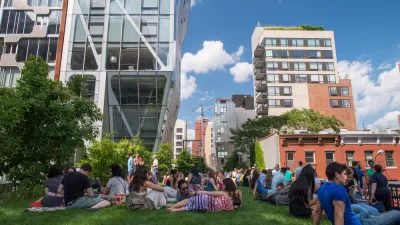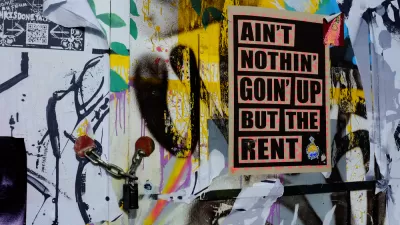A new study that explores the geography of twitter networks finds that rather than making place obsolete, their intensity can be predicted by location and proximity, suggesting they enhance location based relationships.
The research, carried out by University of Toronto and Dalhousie University academics, focused on roughly 2,000 dyadic tweeters, which they located in 386 distinct locations, or "regional clusters."
Their results indicated that four in every ten pairs are located in the same regional cluster, and that those that were separated by distance were linked by a high frequency of airline connections between their respective locations. "Ties of less than 1,000 kilometers are more common than expected (if such ties were random) and ties of greater than 5,000 kilometers are much less so."
The research indicates that twitter networks tends to reinforce and strengthen real world networks, rather than replace them. Richard Florida suggests that "instead of freeing us from place, the Internet appears to enhance and even expand its role."
FULL STORY: How Twitter Proves That Place Matters

Planetizen Federal Action Tracker
A weekly monitor of how Trump’s orders and actions are impacting planners and planning in America.

Chicago’s Ghost Rails
Just beneath the surface of the modern city lie the remnants of its expansive early 20th-century streetcar system.

San Antonio and Austin are Fusing Into one Massive Megaregion
The region spanning the two central Texas cities is growing fast, posing challenges for local infrastructure and water supplies.

Since Zion's Shuttles Went Electric “The Smog is Gone”
Visitors to Zion National Park can enjoy the canyon via the nation’s first fully electric park shuttle system.

Trump Distributing DOT Safety Funds at 1/10 Rate of Biden
Funds for Safe Streets and other transportation safety and equity programs are being held up by administrative reviews and conflicts with the Trump administration’s priorities.

German Cities Subsidize Taxis for Women Amid Wave of Violence
Free or low-cost taxi rides can help women navigate cities more safely, but critics say the programs don't address the root causes of violence against women.
Urban Design for Planners 1: Software Tools
This six-course series explores essential urban design concepts using open source software and equips planners with the tools they need to participate fully in the urban design process.
Planning for Universal Design
Learn the tools for implementing Universal Design in planning regulations.
planning NEXT
Appalachian Highlands Housing Partners
Mpact (founded as Rail~Volution)
City of Camden Redevelopment Agency
City of Astoria
City of Portland
City of Laramie




























